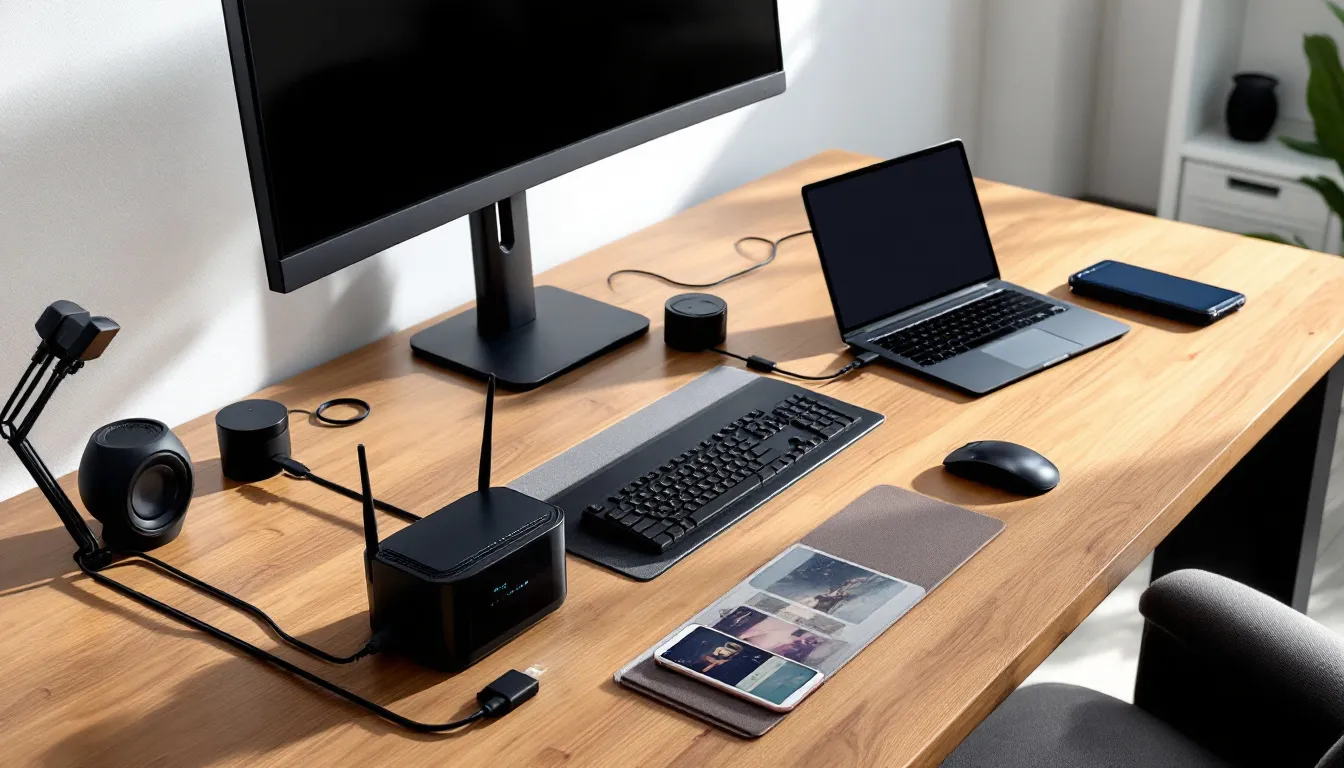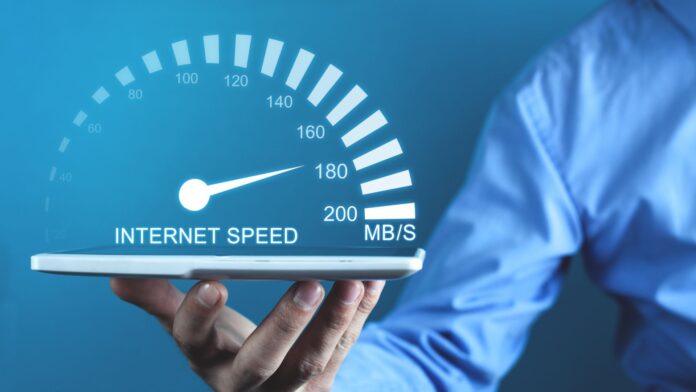Tired of your cable internet’s surprise fees and slow upload speeds? When internet providers keep raising prices while delivering inconsistent service, it’s time to explore alternatives. Verizon has emerged as a serious contender in the broadband market, offering tailored plans for all ages, and ranking second in customer satisfaction among major internet providers, just behind T-Mobile.
But is Verizon internet actually good? The answer depends on which service you’re considering and where you live. Verizon offers three distinct internet services: 5G Home Internet, Fios fiber, and legacy DSL. Each targets different needs and geographic areas, with varying performance levels and pricing structures.
In this comprehensive analysis, we’ll examine real-world performance data, all demographics customer feedback, and pricing to help you determine if Verizon internet is worth it for your household. From speed test results to coverage maps, we’ll cover everything you need to make an informed decision about your next internet provider.
Article updated for 2025. This article will be updated as new information about Verizon internet becomes available.
Quick Answer: Is Verizon Internet Worth It?
Yes, Verizon internet is generally good, particularly for retirees, or households seeking alternatives to traditional cable internet providers. Here’s what you need to know:
Verizon’s three internet services deliver different experiences:
- 5G Home Internet: 245-360 Mbps typically, costs $35-80/month
- Fios fiber: Up to 2,000 Mbps with symmetrical upload speeds
- DSL: Up to 15 Mbps, primarily in rural locations
Key advantages over ethernet cable include:
- No annual contracts or data caps across all services
- Straightforward pricing without hidden fees or overage charges
- Strong customer satisfaction ratings (second among major providers)
- Quick DIY installation for 5G Home Internet
The service generally provides sufficient performance for:
- Streaming videos in HD or 4K
- Video calls and remote work
- Online gaming
- Multiple devices connected at once
Main Limitations Vs Cable Internet
- Occasional connection drops on 5G service requiring router restarts
- Limited availability in rural areas for both 5G and Fios
- Performance can vary depending on location and signal strength
For most customers in covered areas, Verizon 5G Home Internet offers excellent value, with most paying $35-50 per month. Paying less each month compared to cable—often saving $20-30—can be a significant benefit, especially when considering the reliable speeds and straightforward billing. However, you should check availability at your specific address and consider keeping your existing service for 30 days while testing Verizon’s performance.

Verizon Internet Service Types Explained
Understanding Verizon’s internet offerings is crucial for determining which service fits your needs. As an ISP, Verizon stands out from other ISPs by offering three distinct services that use fundamentally different infrastructure and deliver vastly different experiences.
Verizon’s 5G Home Internet
This plan represents the company’s newest and fastest-growing service. This fixed wireless solution uses cellular networks and cell towers to deliver broadband to your home through an internet gateway device. You’ll connect your devices either via wi fi or ethernet cable. The service typically delivers 245-360 Mbps download speeds with 20-30 Mbps upload speeds, making it competitive with many cable internet providers.
Verizon’s Fios
Verizon Fios uses fiber-optic cables to deliver symmetrical upload and download speeds ranging from 200 Mbps to 2,000 Mbps. This wired connection provides the most consistent performance but remains limited to select Northeast states like New York, New Jersey, and parts of Pennsylvania, Massachusetts, and Virginia. If available in your location, Fios often represents the premium option among internet providers.
Verizon’s High Speed Internet (DSL)
It operates over existing copper phone lines, delivering speeds up to 15 Mbps. This legacy service primarily serves rural areas where neither Fios nor 5G coverage exists. While adequate for basic web browsing and email, DSL struggles with modern bandwidth demands like 4K video streaming or large downloads.
The choice between these services often comes down to availability rather than preference. Most customers in metropolitan areas can choose between Verizon’s 5G Home Internet and competing cable providers, while Verizon’s Fios availability remains limited despite its superior performance characteristics. Other factors, such as device compatibility, network congestion, and household internet usage, can also influence which service is best for your needs.
Speed and Performance Analysis
Real-world internet speed performance often differs significantly from advertised speeds, making it crucial to conduct an internet speed test to measure actual download and upload speeds when evaluating any internet service. Here’s how Verizon’s services actually perform based on customer reports and speed test data.
5G Home Internet Performance
Verizon 5G Home Internet delivers impressive speeds for a wireless service, though performance varies more than fiber connections. In optimal conditions with strong signal strength, customers regularly see download speeds between 240-280 Mbps, with peak speeds reaching 300+ Mbps during off-peak hours.
Cell Phone Upload Speeds
Upload speeds typically range from 20-30 Mbps, which matches or exceeds many cable internet plans. This performance supports multiple simultaneous video streams, large file uploads for remote work, and online gaming without significant lag. However, speeds can drop during peak usage times when network congestion affects cellular networks. Some users also report dropouts or disconnections when using phones with Verizon 5G Home Internet, impacting calls and app reliability.
The service generally provides sufficient performance for:
- Multiple 4K video streams simultaneously
- Video conferencing and remote work applications
- Online gaming with acceptable latency
- Large file downloads and cloud backups
- Smart home devices and connected gadgets
Location plays a crucial role in 5G Home performance. Customers closer to cell towers typically experience faster speeds and more consistent connections. Those at the edge of coverage areas may see more variable performance, especially during peak usage periods.

Pricing and Value Comparison
Verizon’s pricing structure emphasizes transparency and simplicity compared to many traditional cable providers. Understanding the actual costs helps determine whether Verizon internet represents good value for your household.
5G Home Internet Pricing:
- Standard pricing: $50-80/month depending on your location
- Verizon mobile customer discount: $35-45/month (saving $15/month)
- Price lock guarantees for 3-10 years depending on plan
- No equipment rental fees, installation costs, or early termination fees
If you are switching from another provider, Verizon sometimes offers to cover part of your previous provider’s early termination fee as an incentive to make switching easier.
Fios Pricing Structure:
- Entry plans: $40-50/month for 200-300 Mbps
- Mid-tier plans: $60-80/month for 400-500 Mbps
- Premium plans: $90-110/month for gigabit speeds
- Bundling options with streaming services often included
- No contracts required, though discounts available for longer commitments
Key Value Factors: Verizon’s straightforward pricing eliminates many frustrations associated with other isps. There are no data caps on any plan, meaning you won’t face overage charges regardless of usage. The absence of early termination fees provides flexibility to cancel service without penalty.
When comparing cost-per-Mbps, Verizon 5G Home Internet often delivers better value than cable alternatives. A typical $45/month plan delivering 250 Mbps costs about $0.18 per Mbps, competitive with premium cable internet plans that include contracts and fees.
Equipment costs remain minimal since Verizon provides the internet gateway and wi fi router at no additional monthly charge. Some customers may receive their modem gateway or account reset codes via mail, which can take several days. Unlike some providers requiring expensive equipment rental, your monthly bill reflects the actual service cost without hidden equipment fees.
Once you have signed up for Verizon internet, your account and equipment are activated.
Data Limits and Caps
Verizon 5G Home Internet offers truly unlimited data with no caps or overage fees. Customers can stream, game, and work without worrying about monthly limits. However, during network congestion, speeds may temporarily slow to ensure fair access, especially in densely populated areas.
Internet Gateway and Equipment
Setting up Verizon internet is easy with the all-in-one Internet Gateway, which combines modem and Wi-Fi router. Simply plug it in, connect via ethernet cable for initial setup, and customize your wi fi network. No separate router or technician is needed, providing fast, reliable coverage for all devices.
Internet Security
Verizon 5G Home Internet includes built-in security features like a firewall, parental controls, and basic antivirus protection. Optional add-ons such as identity theft protection are available. Using strong passwords and keeping software updated further enhances security and peace of mind.
Comparison with Competitors
When compared to other internet providers, Verizon 5G Home Internet stands out for its combination of faster speeds, competitive pricing, and growing availability. For example, Verizon 5G Home Internet plans can deliver download speeds of up to 1,000 Mbps in some areas, which is generally faster than what T-Mobile’s 5G internet plans offer. This makes Verizon a strong choice for users who prioritize high-speed downloads for streaming, gaming, or large file transfers.
Internet Speed Test: Verizon 5g home internet Vs T Mobile
In terms of pricing, Verizon’s standard 5G Home Internet plan starts at $50 per month, which is on par with or better than many other providers. Some competitors, like Starry, may offer lower prices in select locations—such as $40 per month for 200 Mbps—but Verizon’s broader coverage and higher speed potential often provide better value for many customers.
Ultimately, the best internet provider for you will depend on your specific location, the speeds available at your address, and your household’s internet needs. It’s always a good idea to check availability and compare plans from multiple providers to ensure you’re getting the best deal and the fastest speeds for your area.
Customer Satisfaction and Reviews
Customer satisfaction data provides crucial insight into real-world service quality beyond marketing claims. Verizon’s performance in independent surveys reveals both strengths and areas for improvement.
According to J.D. Power’s 2024 Internet Service Provider Satisfaction Study, Verizon ranks second overall among major internet providers for customer satisfaction. This ranking reflects performance across factors including reliability, speed, customer service, and value.
Common Customer Praise: Download Speeds, Unlimited Data
- Speed consistency: Customers frequently report getting advertised speeds or better
- Pricing transparency: Appreciation for clear billing without surprise charges
- Customer service accessibility: Phone support generally responsive and helpful
- Installation simplicity: 5G Home Internet’s 15-minute DIY setup receives positive feedback
- No-contract flexibility: Freedom to cancel without penalties appeals to many customers
Frequent Customer Complaints: Signal Strength, Data Caps, Drop Outs
- Occasional connection drops: Some 5G Home Internet customers report needing to restart their wireless router periodically
- Setup challenges: Initial account creation and device activation can be confusing
- IP geolocation issues: Streaming services sometimes show content from wrong geographic regions. Many customers use Google to check their IP address location and sign in to streaming services to verify content availability as part of troubleshooting.
- Rural availability: Limited coverage frustrates potential customers in underserved areas
Customer reviews consistently rate Verizon 5G Home Internet higher than traditional cable for value and reliability. Many customers report saving $20-40 monthly compared to their previous cable internet while receiving comparable or better performance.
Fios fiber service receives even higher satisfaction ratings, particularly for speed and reliability. However, limited availability means fewer customers can access this premium service compared to 5G Home Internet.

Coverage and Availability
Verizon internet coverage varies by service type and location, with ongoing expansion.
5G Home Internet: Available to over 40 million households, mainly in metro and suburban areas like New York City, Los Angeles, Chicago, Philadelphia, and Washington D.C. Coverage depends on signal strength from nearby cell towers, so check availability on the Verizon website using your exact address.
Fios Fiber: Concentrated in the Northeast, serving around 15 million households in areas including New York, New Jersey, Pennsylvania, Massachusetts, Virginia, Rhode Island, and Connecticut. Expansion is limited as Verizon focuses on 5G.
Rural Areas: Most rural locations lack 5G or Fios coverage and rely on slower DSL service. Verizon plans to expand 5G Home to 8-9 million customers by 2028, but rural areas may continue using satellite or other alternatives.
For in-person help, customers can visit a Verizon store for support or equipment pickup.

Final Verdict: Is Verizon Internet Good?
After analyzing performance data, customer feedback, and pricing across Verizon’s internet services, the answer is yes – Verizon internet is good overall, with specific services excelling in different scenarios.
For most households, Verizon 5G Home Internet represents excellent value as a cable internet alternative. The combination of competitive speeds (245-360 Mbps), straightforward pricing ($35-50/month for most customers), and no-contract flexibility addresses major pain points with traditional cable providers. While occasional connection drops require router restarts, overall reliability and performance satisfy most customer needs.
Verizon Fios stands out as a premium fiber option where available, delivering consistent gigabit speeds with ultra-low latency. The limited coverage area restricts access, but customers in Fios territories often find it superior to cable alternatives for speed, reliability, and value.
Key decision factors:
- Metro area customers benefit most from 5G Home Internet’s availability and value proposition
- Bundle discounts for existing Verizon mobile customers improve value significantly
- Address-specific availability varies even within covered cities, requiring verification before signup
- 30-day testing period recommended while maintaining existing service as backup
Before making the switch, check availability at your exact address, consider your household’s internet usage patterns, and take advantage of no-contract policies to test service quality at your own risk. For most customers in covered areas, Verizon internet represents a solid choice among today’s internet providers.


